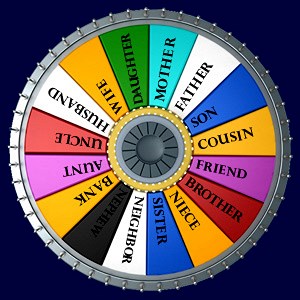A descendant under WESA is defined in S 1 (1) as all of lineal descendants through all generations.
It in effect replaces the word “issue” that in S 85 of the Estate Administration Act had been defined as ” all lineal descendants of the ancestor”.
This may cause some confusion in the future due to the common use of the words in wills stating ” to my issue in equal shares per stirpes”, but I am sure that the courts can easily resolve with that.
Sections 23 and 24 deal with the distribution of intestate estates to descendants of a deceased.
No spouse but intestate leaving descendants or relatives
23 (I) This section applies if a person dies without a will and without leaving a surviving spouse.
(2) Subject to subsection (3) and section 24, if a person dies without leaving a surviving spouse, the
intestate estate must be distributed
(a) to the intestate’s descendants,
(b) if there is no surviving descendant, to the intestate’s parents in equal shares or to the intestate’s surviving parent,
(c) if there is no surviving descendant or parent, to the descendants of the intestate’s parents or parent,
(d) if there is no surviving descendant, parent or descendant of a parent, but the intestate is survived by one or more grandparents or descendants of grandparents, (i) an equal part to the surviving parents of each of the intestate’s parents, in
equal shares of the part, but if a parent of the intestate has no surviving parent, that part to the descendants of that grandparent in equal shares, and (ii) for the purpose of subparagraph (i), a part is determined by dividing the estate by the number of parents of the intestate who have
(A) a surviving parent, or
(B) a surviving descendent of the parent referred to in clause (A),
(e) if there is no surviving descendant, parent, descendant of a parent, grandparent or
descendant of a grandparent, but the intestate is survived by one or more great-
grandparents or descendants of great-grandparents,
(i) an equal part to the surviving grandparents of each of the intestate’s
parents, in equal shares of the part, but if a grandparent of the intestate has no surviving parent, that part to the descendants of that great-grandparent in equal shares, and
(ii) for the purpose of subparagraph (i), a part is determined by dividing the estate by the number of parents of the intestate who have
(A) a surviving grandparent, or
(B) a surviving descendent of the grandparent referred to in clause (A), or
(f) if there is no person who is entitled under paragraphs (a) to (e), the whole intestate
estate passes to the government and is subject to the Escheat Act.
(3) For the purposes of this section, persons of the 5th or greater degree of relationship to the
intestate are conclusively deemed to have predeceased the intestate, and any part of the intestate estate
to which those persons would otherwise be entitled must be distributed to other descendants entitled to
the estate.
Section 23 is a new provisions with a new approach called ” parentelic” that replaces the degrees of kinship that had been in S 85-89 of the Estate Administration act.
S 23 only applies where a decasew dies without a spouse, descendants, parents or descendants of parents surviving the deceased.
Under the parentelic system:
a) descendants of the nearest common ancestor always inherits before the descendants of a more distant ancestor;
b) distributions are more likely to be made on both sides of the family
c) the need to locate more distant relatives is lessened as only persons of the 4th degree or less in relationship to the intestate may inherit ( ie first cousins of the deceased would inherit, but not the children of first cousins as that would be more than the 4th degree. IF no one of 4th or lesser degree, then the assets escheat to the Crown.
Distribution to descendants
24 (I) When a distribution is to be made under this Part to the descendants of a person, the property that is to be so distributed must be divided into a number of equal shares equivalent to the number of
(a) surviving descendants, and
(b) deceased descendants who have left descendants surviving the person, in the generation nearest to the person that contains one or more surviving members.
(2) Subject to subsection (3), each surviving member of the generation nearest to the person that contains one or more surviving members must receive one share, and the share that would have been distributed to each deceased member if surviving must be divided among that member’s descendants in the same manner as under subsection (I) and this subsection.
(3) Distribution to descendants under subsections (I) and (2) as a result of a parent of the descendants having predeceased the intestate ends with the children of a brother or sister of the intestate.
Section 24 brings forward the policy of s. 84 of the Estate Administration Act to provide for per stirpes (or “by representation”) distribution to descendants, and expressly specifies the steps to determine per stirpal distribution.
The court does not have jurisdiction to vary the equal distribution, even though one of the children has engaged in offensive conduct: Andersson v. Khan Estate, 2006 BCSC 521, affirmed 2007 BCCA 532 (considering s. 84 of the EAA).

